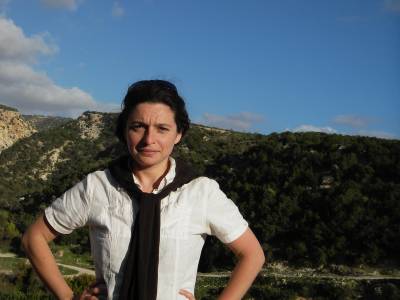Elena Isayev is a historian and practitioner focusing on migration, hospitality and displacement, which she has written about for the Red Cross and in her book Migration, Mobility and Place in Ancient Italy. Her current focus is on Beyond Resilience: rights, exceptional politics and innovation out of displacement. She also works with Campus in Camps in Palestine and is a Trustee of Refugee Support Devon. She is Professor of Ancient History at the University of Exeter, UK.
The research which Professor Isayev is keen to conduct at the IAS, drawing on its dynamic interdisciplinary environment, will be used to build and test the intellectual underpinnings of a larger Beyond Resilience initiative. Her goal during the Fellowship is to create a robust foundation for this longer term investigation that seeks to bring together researchers and practitioners engaged with, or in, contexts of displacement who are invested in examining the rights, agency and the potential of politics, beyond that enacted through nation states and citizenship. She would like to develop the historical and theoretical elements addressing the role of people who are displaced in negotiations with hosts. This will also be part of a monograph on transformations of hospitality and asylum over time, employing historical studies to critically examine methods used by displaced persons in requesting refuge, and the changing nature of responses to them.
The Fellowship will allow the establishment of a theoretical framework and methodology for approaching historical evidence for asylum and hospitality which can cope with varied contexts and questions, including: To what extent is utility a constant factor through history in decision-making about strangers seeking refuge? How do circumstances of displacement influence responses? How significant is the length of stay and possibility for return in hosts' decisions? In what ways do frameworks of exile, repatriation and treaties affect hosting negotiations? Under what conditions are places - city, sanctuaries, churches - designated as asylums? How do hosts' 'international' standings influence asylum decisions? What are the different forms of agency employed by displaced people?
 Close
Close


